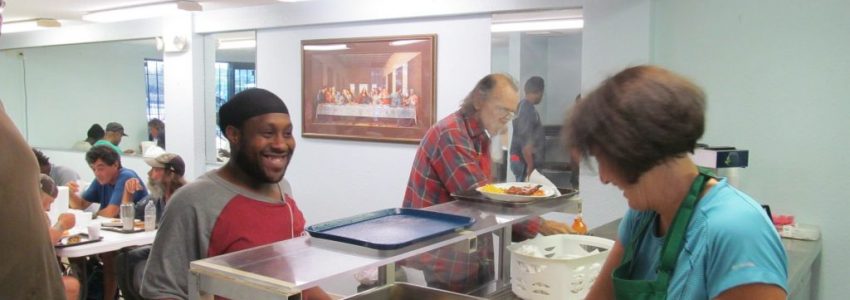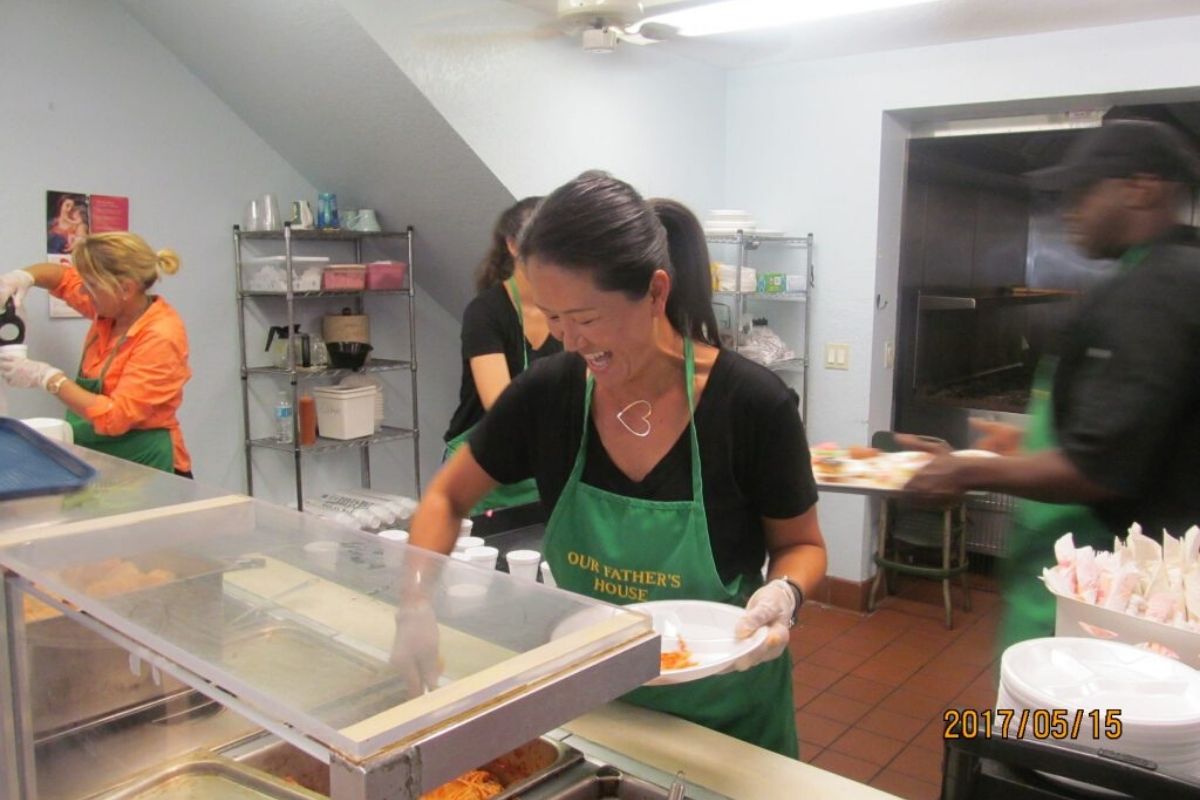What is a Soup Kitchen?

Published October 17, 2021
By definition, a soup kitchen is a place where free food (usually soup and bread) is served to the homeless and destitute without judgment or discrimination. These places are usually run by charitable or religious organizations and staffed by volunteers. In reality, however, a soup kitchen is so much more than that.
What Does a Soup Kitchen Do?
A familiar feeling among homeless people is hopelessness. And we cannot blame them. When you have lost everything (your house, friends, and family), it’s inevitable to feel such desperation. Every single day, they have to keep fighting to survive. And every single day, they sink deeper into the quagmire of self-pity and desolation.
Soup kitchens have become a place of refuge for those less fortunate souls. It gives them hope that all is not lost and there are still people who care for them. In these havens, they are not judged, discriminated against, or made to feel like they’re worthless. Instead, they are cared for and treated as equals.
Aside from free food, most soup kitchens also provide other necessities such as clothing and hygiene kits. Though some soup kitchens only serve soup and bread, others serve a freshly-cooked full course meal. They also provide a take-out bag with a sandwich and other goodies.
The most important thing a soup kitchen does, however, is providing the homeless with a sense of belonging. For someone who doesn’t have a place of their own, this is a big deal, particularly during special occasions.
How Do Soup Kitchens Help the Community?
Throughout history and in most cultures, the sharing of food to the less fortunate is a common practice. Society has always felt a moral obligation to help its most vulnerable members.
This is how soup kitchens help the community. They provide a venue for those with resources to share their blessings with people who are in dire need of them.
Not only does it encourage charity, but it also brings the community together. It helps break societal boundaries as rich and poor, young and old gather together to share a meal. More importantly, it teaches young children the importance of empathy.
With more than 38 million people experiencing hunger in the US, about 12 to 21 million people rely on soup kitchens. This puts soup kitchens at the forefront in the fight against hunger and illustrates their importance, especially in low-income communities.

Why is a Soup Kitchen Called a Soup Kitchen?
Since ancient times, charitable organizations have been serving soup to the poor and hungry. Aside from being economical, a hot soup can also be very filling making it the ultimate food choice for relief organizations with limited resources. Then during the Great Depression, these types of food assistance places became more prominent in the US. People would line up in these places (which usually feature large kitchens) to get their daily ration of soup and bread. And that’s how the term “soup kitchen” came about.
Where Do Soup Kitchens Get Their Food?
Soup kitchens run on the generosity of people in the community. They rely mostly on donations from individuals and institutions who believe in their cause.
At Our Father’s House Soup Kitchen, for example, donors have the option to donate cash or food items. Non-perishable items like bottled water, cereals, bread, coffee, milk, and canned goods are especially needed. But you can also donate used clothes and hygiene items as these are very much useful for the homeless too.
The Difference Between Soup Kitchens and Food Pantries
Though both give out food to the homeless, soup kitchens and food pantries differ in their methods.
Food pantries give out pre-packaged food items that the recipient can eat and cook at home. This is convenient for people who live far away from these institutions. They can receive up to a week’s worth of food without having to visit the food pantries frequently.
Soup kitchens, on the other hand, give out freshly-cooked meals which can be eaten on their premises. Unlike food pantries, soup kitchens serve food to anyone who turns up with no questions asked. This is why it’s an ideal setup for providing food to the homeless and those with long-term dependence on food assistance. They are able to enjoy a hot meal in an environment free of discrimination and prejudice.
One free hot meal each day may not matter much to you but it could be a lifeline for others. Join us in helping the homeless. Donate or volunteer at soup kitchens near you. Together, we can change the world with one small act of kindness at a time.
Donate To The Poor & Homeless Of South Florida
Our Father’s House Soup Kitchen has fed the poor and homeless in South Florida over 900,000 hot meals since 1993. Our tax deductible non profit organization also accepts and distributes donations such as clothing, toiletries, shoes, bicycles, and more. You can donate to help the poor and homeless through our website.

Reviewed For Factual Accuracy
Our team meticulously fact-checks all website content before publishing. Discover more about our website’s editorial standard here and the dedication we uphold.

About The Author
Judy Ponio is a professional writer and devoted Christian. She has a passion for writing about topics related to morality and helping the poor and homeless. She is the lead author for the Our Father’s House Soup Kitchen blog.
Correct Digital, Inc is paid by private donors to provide website digital marketing services to this non-profit organization.





